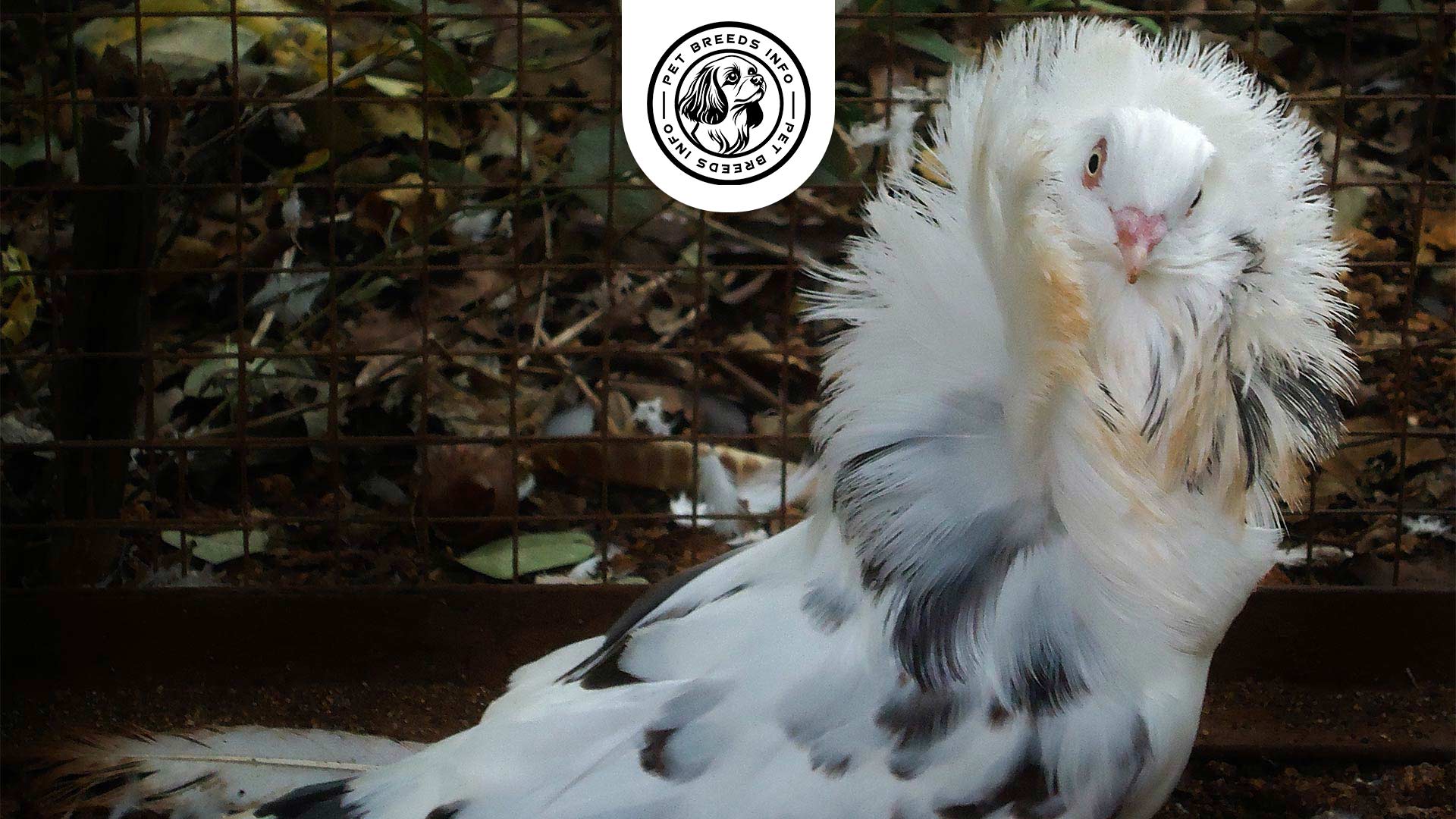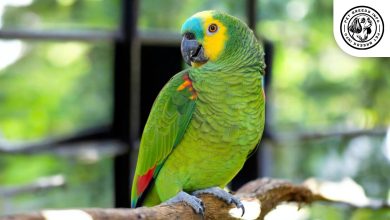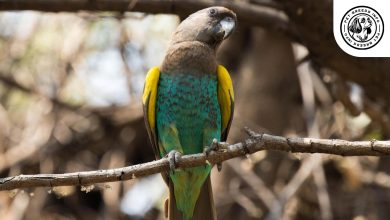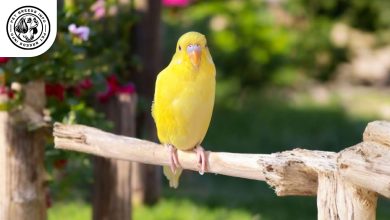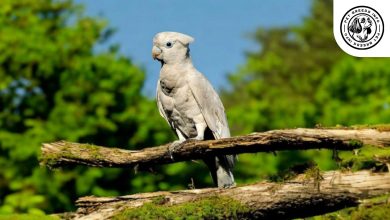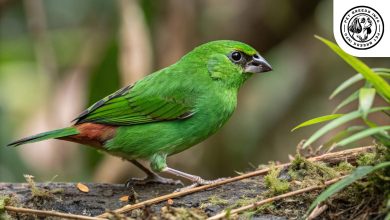Jacobin Pigeon Bird: Personality, Lifespan, Food & Care
General Introduction of the Breed
The Jacobin Pigeon, known as “Jacobin” in various regions, is a fancy pigeon variety that originated from the Indian subcontinent. It is a highly prized breed among pigeon fanciers due to its elegant plume of feathers that surrounds its head like a hood.
Historically, Jacobin Pigeons were bred and developed from selective breeding to enhance their unique feather arrangement. This breed has been admired for centuries, with records showing its presence in Europe as early as the 16th century.
Table of Contents
| Common Name | Jacobin Pigeon (also known as “Jacobin”) |
| Scientific Name | (Not mentioned in the text) |
| Origin | Indian subcontinent |
| Size | Medium-sized (average weight of 12 to 14 ounces / 340 to 400 grams) |
| Lifespan | Around 7 to 10 years |
| Talking Ability | (Not applicable to pigeons) |
| Colors | White, black, red, yellow, blue, and silver |
| Noise Level | (Not specifically mentioned, but generally pigeons coo) |
| Social Behavior | Generally calm and gentle, can coexist with other pigeons with monitoring |
Physical Characteristics
Jacobin Pigeons are medium-sized pigeons with an average weight of 12 to 14 ounces (340 to 400 grams). They have an upright stance and a balanced body structure.
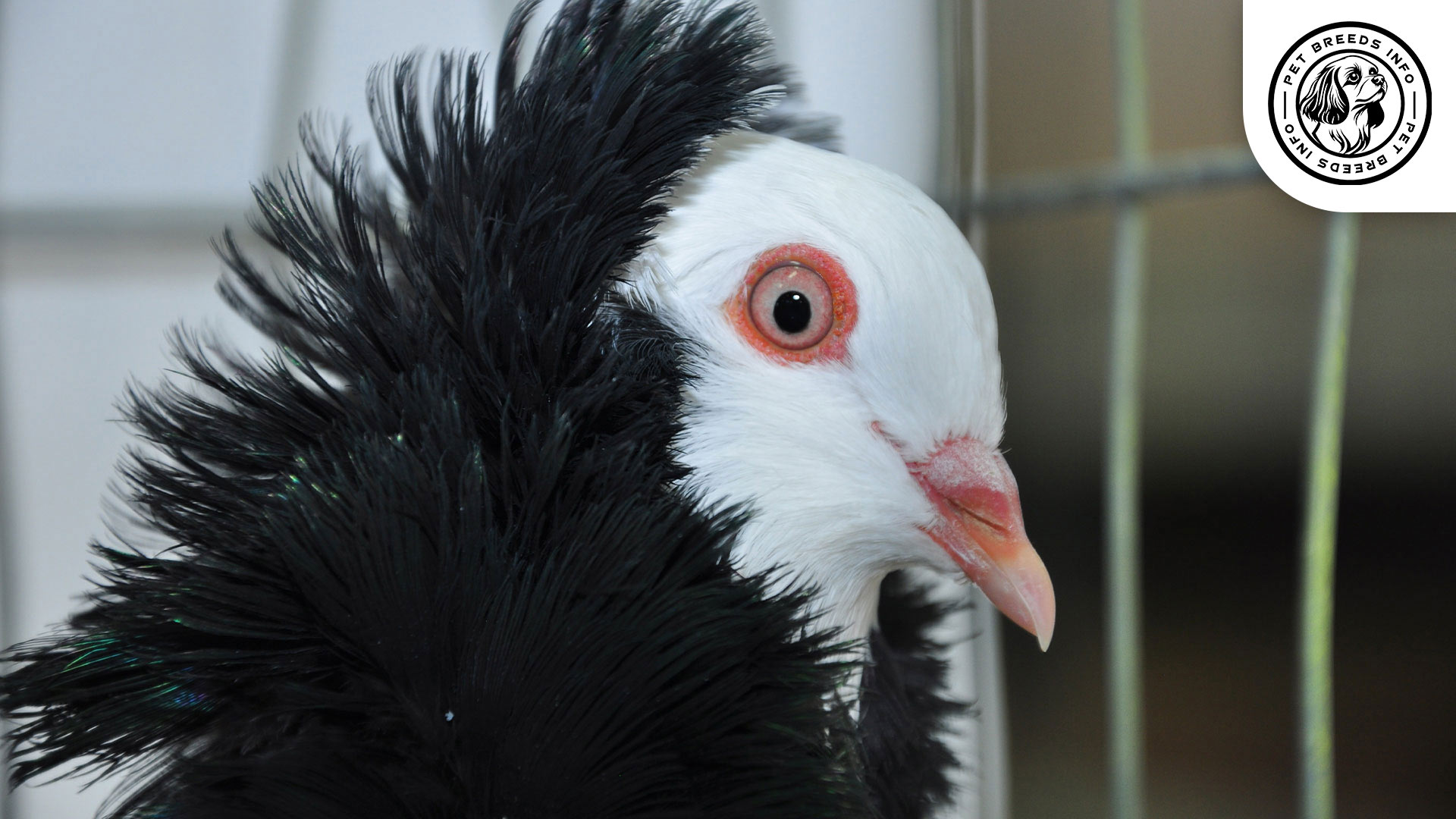
The most distinctive feature of the Jacobin is its fully developed, fluffy feathered hood that extends around its head, covering the eyes and beak. This gives it a very stylish and aristocratic appearance.
The breed comes in a variety of colors, including white, black, red, yellow, blue, and silver. Their eyes are typically dark in color, though visibility is often limited due to the thick feather cover. The tail is medium in length and blends well with the smooth compact body.
Read More: King Pigeon
Personality and Temperament
Jacobin Pigeons are generally calm and gentle birds. They are not particularly aggressive but can be somewhat reserved due to their limited vision caused by their feather hood.
They are intelligent and can adapt well to captivity, though they require some level of socialization to be comfortable around handlers. Since they are not the best fliers due to their feather structure, they thrive in aviaries or controlled environments.
Though they can coexist with other pigeons, they may need careful monitoring if kept in a mixed aviary, as their feathered crest can make them vulnerable to more dominant breeds.
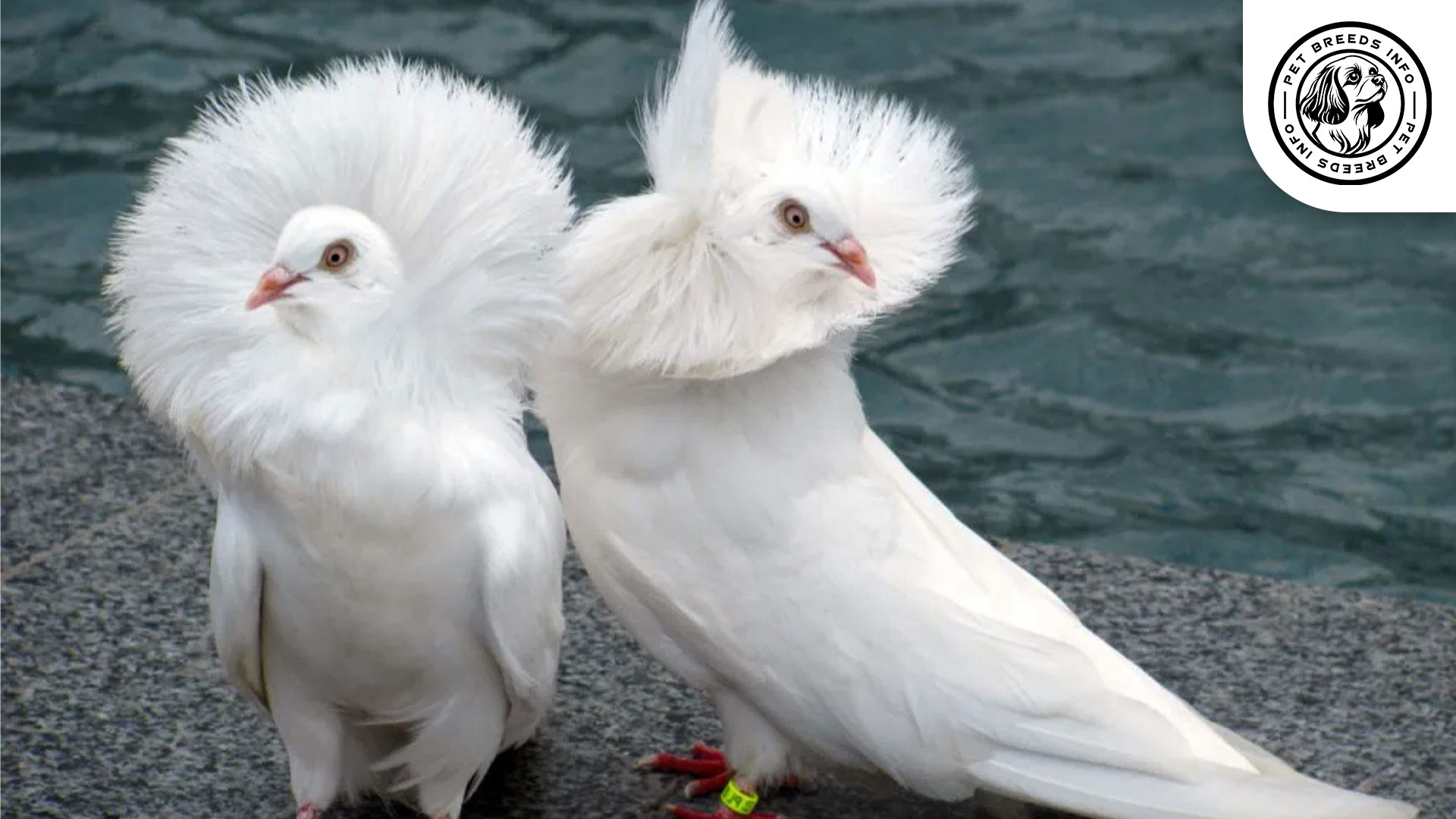
Care and Maintenance Requirements
Jacobin Pigeons require a spacious and clean aviary with enough room for movement. Since their feather hood can limit visibility, they should be provided with a safe and obstacle-free living space.
Grooming is essential for this breed. Regular feather maintenance, especially around the face, is needed to prevent dirt accumulation. Their feathers may require occasional trimming to prevent obstruction.
They are moderately sensitive to extreme weather conditions, particularly high humidity, which can damage their feathers. Proper ventilation and shelter from heat or cold are necessary.
Regular hygiene practices like cleaning their aviary, ensuring fresh water, and inspecting their feathers for parasites or debris are important for maintaining their health.
Diet and Nutrition
Jacobin Pigeons thrive on a diet primarily composed of high-quality pigeon feed, including grains like millet, corn, wheat, and barley. They also benefit from seeds and fresh greens as dietary supplements.
Fresh water should be available at all times, and occasional calcium and grit supplements help with digestion and bone health.
Foods that should be avoided include processed human food, chocolate, caffeine, and salty or sugary items which can be harmful to pigeons.
Portion sizes should be adjusted based on activity levels and breeding status, typically feeding them two small meals a day or free-feeding in a controlled aviary setup.
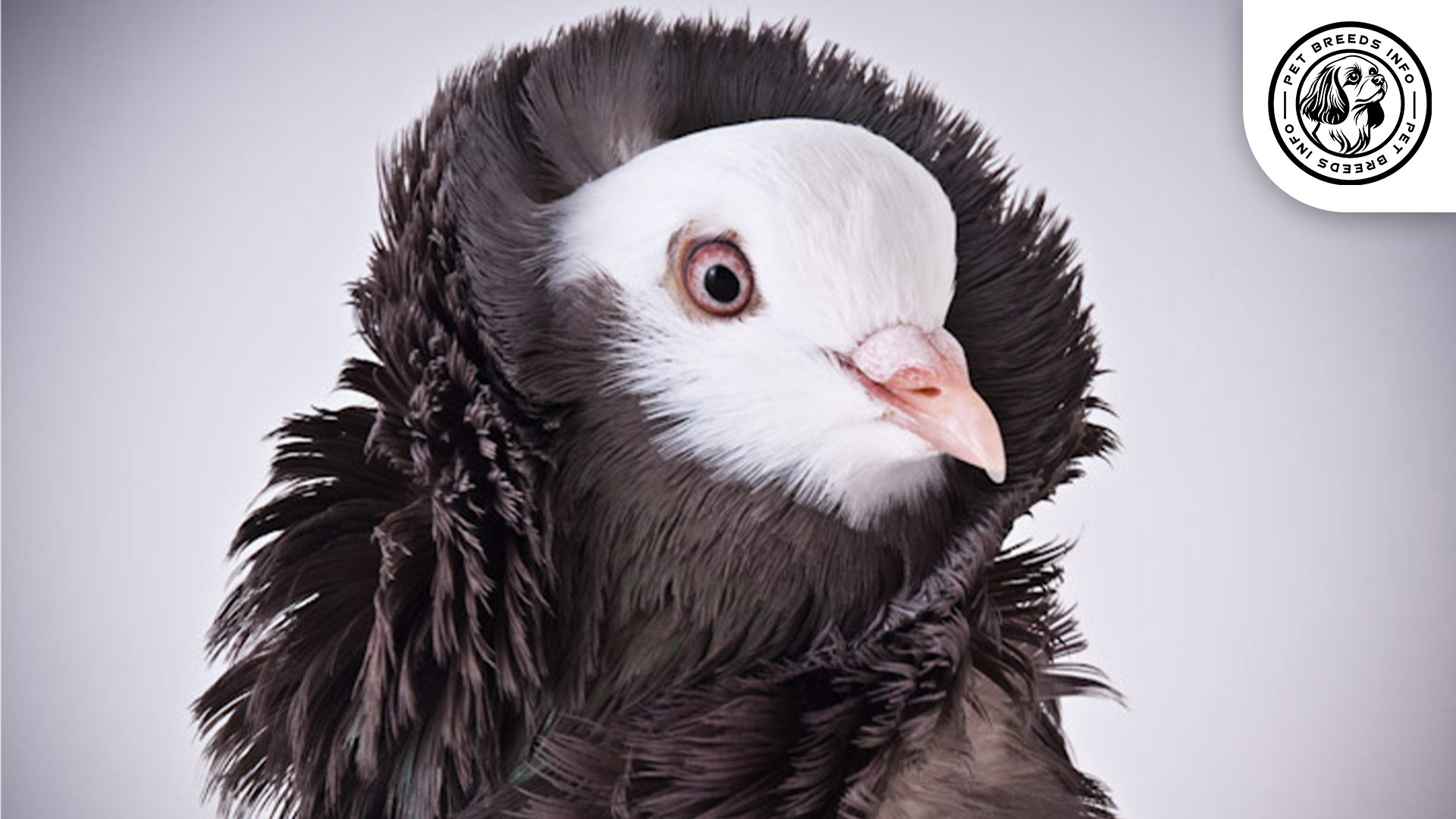
Health and Common Medical Issues
Jacobin Pigeons are generally healthy birds but require careful feather maintenance to prevent infections and dirt buildup.
Common health issues include respiratory infections, feather lice, vitamin deficiencies, and stress-related ailments.
The average lifespan of a well-cared-for Jacobin Pigeon is around 7 to 10 years, though they may live longer under optimal conditions.
Routine veterinary checks, parasite control, and vaccinations against common pigeon diseases can help ensure a long and healthy life.
Read More: Purple-naped Lory Bird
Training and Behavior Management
Training a Jacobin Pigeon requires patience due to its limited vision. They respond well to gentle handling and positive reinforcement.
Introducing them to human interaction early on helps them become comfortable with handlers. They are not particularly responsive to advanced training but can be conditioned to recognize feeding times and perches.
A slow and cautious approach is best, ensuring they feel secure and not threatened in their environment.
Interaction with Other Animals and Humans
Jacobin Pigeons can be kept as pets by both individuals and families. They do well with patient and gentle owners.
Due to their distinctive feather hood, they are not as socially interactive as other pigeon breeds but can still form bonds with their caretakers.
They should not be housed with aggressive birds, as their impaired vision makes them easy targets for bullying.
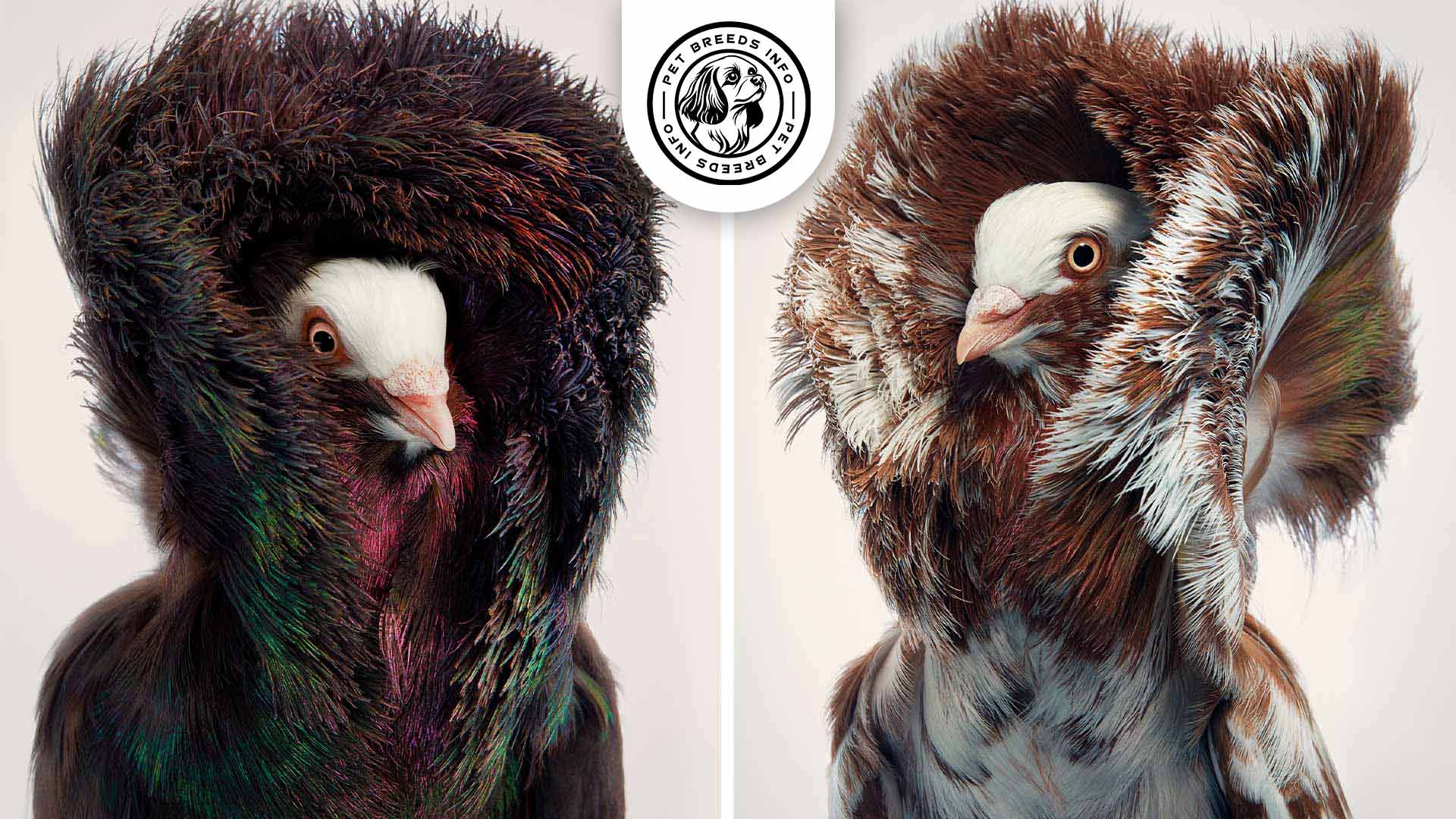
Price and Availability
The price of a Jacobin Pigeon varies based on quality, pedigree, and region. Standard-quality birds range between $50 to $150, while show-quality Jacobins can cost several hundred dollars.
It’s best to acquire Jacobin Pigeons from reputable breeders or pigeon fancier clubs to ensure healthy and well-bred birds. Online platforms and local aviary shops may also have them available.
Before purchasing, ensure that the bird is healthy, active, and well-kept to avoid any health-related issues.
Conclusion and Final Thoughts
The Jacobin Pigeon is a magnificent and unique bird, ideal for experienced pigeon enthusiasts or those interested in ornamental pigeon breeds.
Its elegant plumage and regal appearance make it a favorite among pigeon fanciers, though it requires dedicated care, particularly in feather maintenance and hygiene.
Prospective owners should be prepared to provide proper housing, grooming, and a safe environment due to its limited vision.
Overall, the Jacobin Pigeon is a fantastic addition to any well-maintained aviary and is best suited for those who admire its exquisite beauty and can commit to its unique care needs.
Read More: Frillback Pigeon
FAQ
What is the most distinctive feature of a Jacobin Pigeon?
Their fully developed, fluffy feathered hood around their head.
Are Jacobin Pigeons good fliers?
No, their feather structure limits their flying ability.
What kind of care do Jacobin Pigeons need?
A spacious, clean aviary and regular feather grooming.
What is the typical lifespan of a Jacobin Pigeon?
Around 7 to 10 years with good care.
What colors do Jacobin Pigeons come in?
They come in white, black, red, yellow, blue, and silver.
